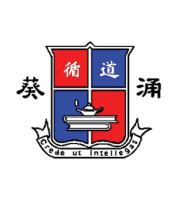| Language Policy |
Although our school uses Chinese as medium of instruction (CMI), we put a great emphasis on boosting students’ English competence. We have been striving our best to develop a conducive English learning environment. Our school incorporates Extended Learning Activities (ELA) in English into junior form curriculum in Mathematics, Life and Society, Integrated Science, Business Fundamentals, Geography, History, Physics, Chemistry and Biology. A combination of strategies has been adopted to promote ELA in the related teaching activities. <br> |
| Learning and Teaching Strategies |
Academic Committee and subject panels hold regular meetings to review teaching effectiveness and implement teaching and learning pedagogy. Teachers regularly solicit ‘Assessment Form for Teaching and Learning’ filled by students to achieve further improvement. Our school encourages students to make the best use of library and computer rooms which are students’ self-learning centres. In addition, with a view to increasing the effectiveness of lessons, our school has been implementing small class teaching, combination teaching mode and cooperative learning in individual junior form and senior form classes. All these provide students with ample space and much deeper learning. Our school has actively integrated curriculum and promoted school-based curriculum to avoid duplication of subject knowledge. Our school provides appropriate and suitable combination of curriculum with reference to our continuous review and catering for students’ learning needs. All these facilitate students’ further studies and career planning. |
| School-based curriculum |
1. Electives: 2X. Students choose 2 elective subjects in accordance with their interests and inspirations.<br> 2. Curriculum highlights: Our school adopts student-centred approach in our curriculum planning, curriculum design, self-designed teaching materials (junior forms) and teaching based on student learning as our focus. These cultivate students to learn generic skills across different subjects, and analyse and solve the issues from different perspectives. In addition to small class teaching, extended learning, enhancement classes and remedial classes and so forth have been conducted to enhance students’ participation in lessons and master learning methods which result in increasing students’ learning effectiveness. |
| Approach to Catering for Learner Diversity |
Our teachers adopt differentiated learning/teaching strategies in their lessons. Other than having extra tutorial classes for students who are weak in Chinese, English and Mathematics, teachers also work with our educational psychologist to help those students who are academically good to improve their learning skills to get better academic results. In recent years, our school has actively cooperated with external professional organisations, for example, the Education Bureau, the University of Hong Kong and the Chinese University of Hong Kong, and incorporated with our after-school enhancement classes and remedial classes to help students of different abilities to learn and display their strengths. |
| Approach to Integrated Education |
In order to cater for students’ needs, pull-out teaching is adopted in junior form Chinese. Our school also organises after-school Chinese classes, English phonics classes, homework remedial classes, speech therapy service. There are different activities for students with different needs, such as LEGO, soft darts classes, gardening and social skills groups. Other than setting up of a parent support group, a 24-hour hotline is set up for parents to contact colleagues concerned with a view to strengthening home-school cooperation. There are coordinators for special educational needs in the core subjects. The school policies strengthen care to students and school-based professional development, and increase the frequency and depth of sharing sessions. |
| Education Support for Non-Chinese Speaking (NCS) Students |
|
| Home-School Co-operation |
Our school actively promotes home-school cooperation. It includes F.1 Parents’ Counselling Day, Parents’ Evenings for different forms, Parents’ Days, a regular publication of ‘Correspondence for Parents’ to strengthen the communication with parents. The Parent-Teacher Association holds parent support groups, parent-child classes, parent volunteer group, and parents’ fellowship to let parents have lifelong learning and strengthen the tie of home-school cooperation. |
| School Ethos |
Our school can create a conducive and harmonious campus through the cooperation of different committees. The setting up of Student Union lets students hone their leadership skills and nurture self-discipline spirit. Both F.1 New Students’ Counselling Programme and F.1 Bridging Programme help them to adapt to secondary school life. Academic Award Scheme is implemented. Adventure activities, expedition courses, social services can help students to affirm their self-confidence and have self-challenge. |
| School Development Plan |
1. In learning and teaching aspect, our school strives to enhance students’ abilities in languages, mathematics and science. Through different lesson studies and teaching strategies, teaching effectiveness can be enhanced to cater for diverse learning needs and nurture good learning habits and attitude.<br>2. As for the work of student nurturing, our school strengthens national education and leadership training, and foster moral and values education to facilitate students’ balanced development of five values and understand the Truth of our Lord to enrich their lives.<br>3. In view of professional development, our school strives the professional cooperation and sharing between subjects and committees to provide comprehensive and coherent learning experience for students.<br> |
| Teacher Professional Training and Development |
Teacher professional development stresses peer sharing and professional sharing in response to the needs of current education reforms and the main points of the school development. Our school mainly adopts e-Teaching strategies, curriculum teaching and lesson study to cater for diverse learning needs of students and establish team spirit as the main themes. These enable teachers to master the rationales behind and implementation strategies to facilitate the professional growth of teachers. |
| Life-wide Learning |
Our school offers life-wide learning activities, such as academic ones, social services, physical education, aesthetic development, music, religious activities and uniform groups. |
